Latin America and Caribbean
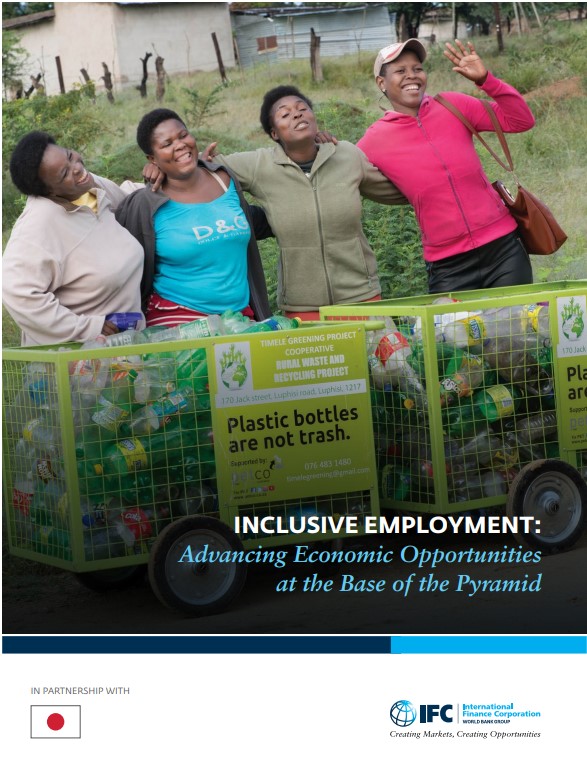
Inclusive Employment: Advancing Economic Opportunities at the Base of the Pyramid
There are 4.5 billion people living at the base of the pyramid worldwide, surviving on low incomes and lacking access to goods, services, and opportunities. Workers at the base are often in the informal sector or low-skill jobs with limited earning. By adopting inclusive employment practices that enhance advancement, and empowerment of these workers, companies have a critical role in expanding access to better livelihoods for these workers.
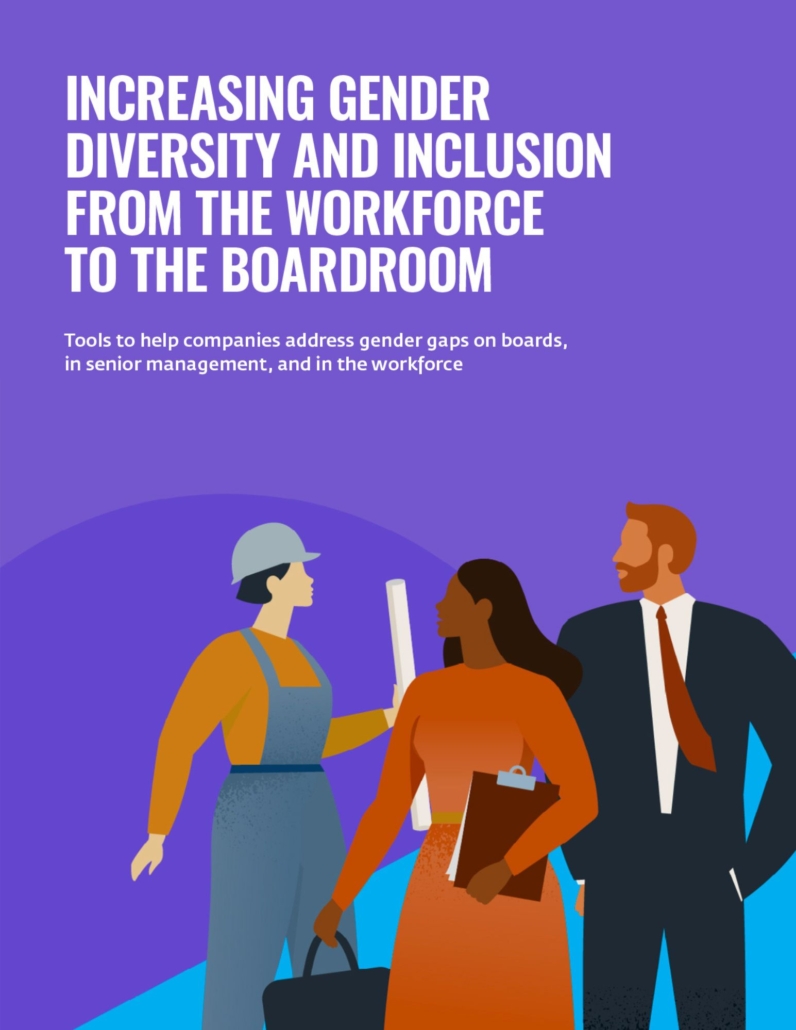
IFC Gender and Infrastructure Toolkit
A comprehensive suite of resources to empower companies to address gender inequality in the workforce, supply chain, and community activities.✅ Tool Suites: Practical tools and guidance on project planning, recruitment and more ✅ Business Cases: Insights from companies who’ve implement gender-smart practices ✅ Interactive Toolkit Builder: Create a customized action-plan for your company
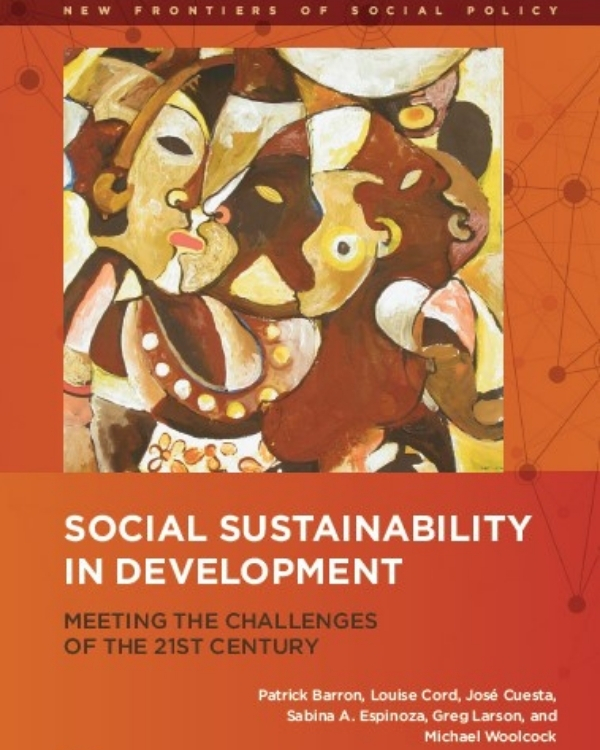
Social Sustainability in Development: Meeting the Challenges of the 21st Century
This publication seeks to advance the concept of social sustainability and sharpen its analytical foundations. The book emphasizes social sustainability’s four key components: social cohesion, inclusion, resilience, and process legitimacy. By identifying interventions that work to promote the components of social sustainability and highlighting the evidence of their links to key development outcomes, this book provides a foundation for using social sustainability to help address the many challenges of our time.
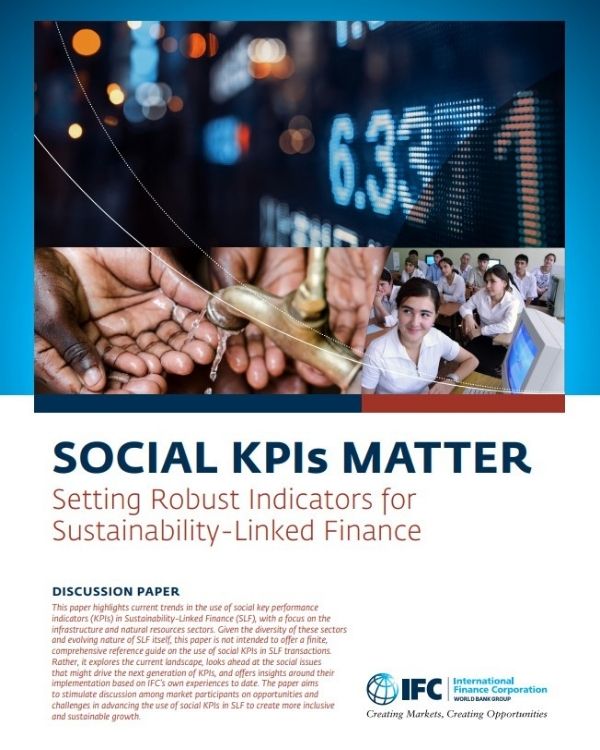
Social KPIs Matter: Setting Robust Indicators for Sustainability-Linked Finance (Updated)
This draft paper highlights current trends in the use of social key performance indicators (KPIs) in Sustainability-Linked Finance, with a focus on the infrastructure sector.
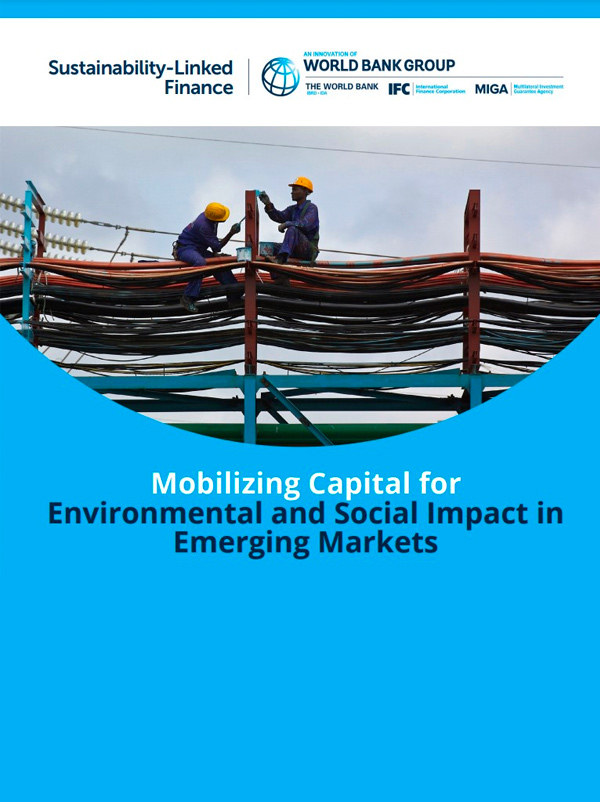
Brochure | Sustainability-linked Finance
Sustainability-linked finance (SLF) is a powerful tool for mobilizing capital as the world moves towards a greener global future. SLF incentivizes companies to pursue ambitious, long-term environmental and social goals, and its use can help countries achieve the 2030 UN Sustainable Development Goals.
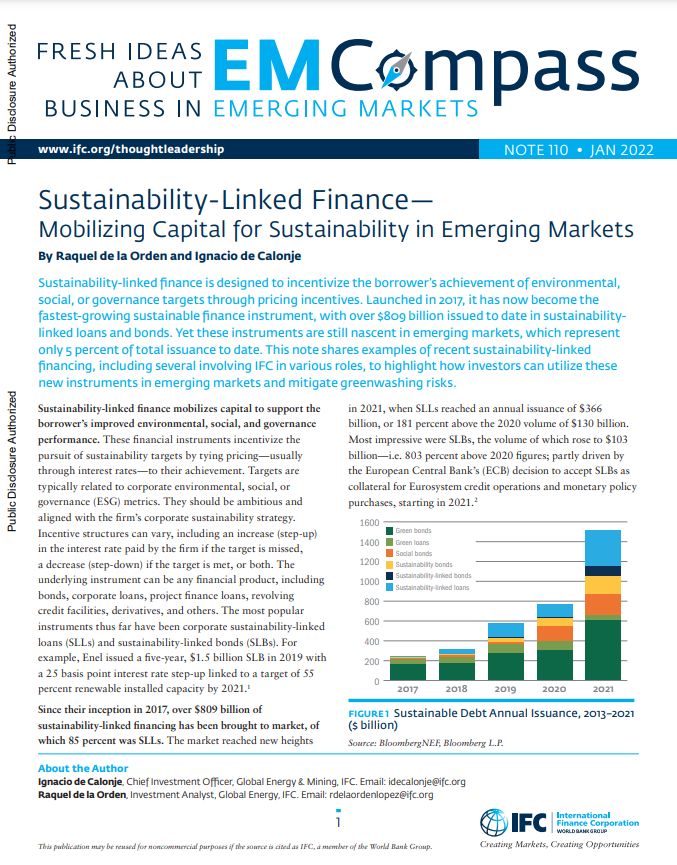
Sustainability-Linked Finance—Mobilizing Capital for Sustainability in Emerging Markets
This note shares examples of recent sustainability-linked financing, including several involving IFC in various roles, to highlight how investors can utilize these new instruments in emerging markets and mitigate greenwashing risks.
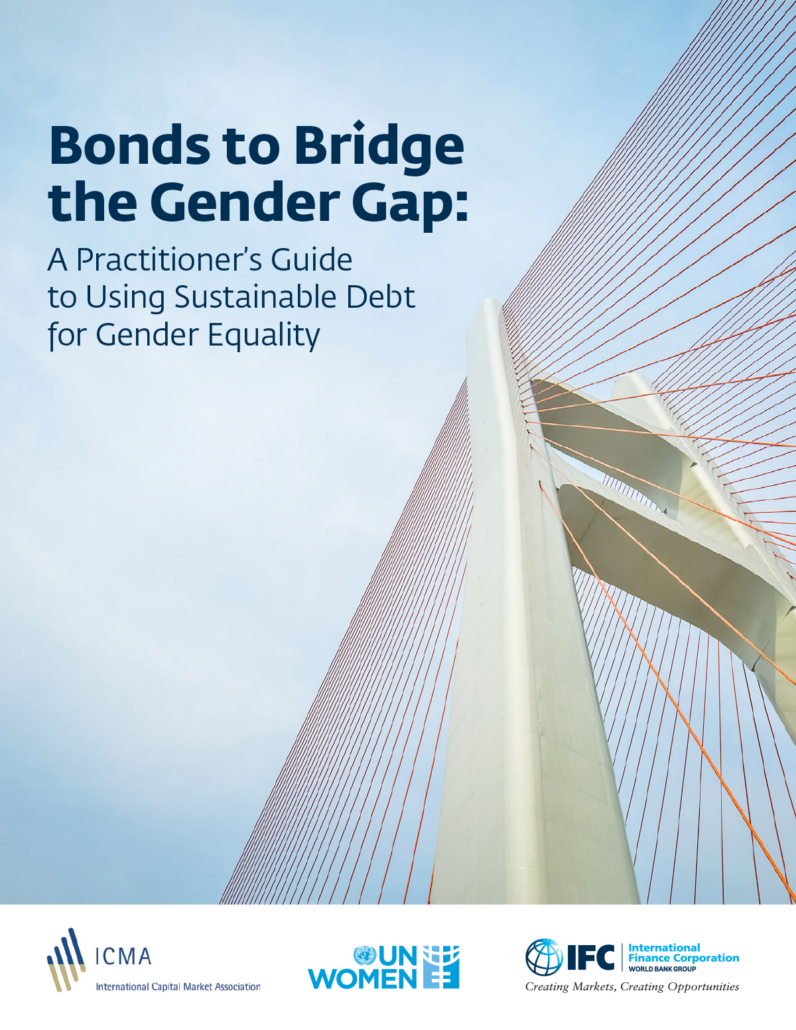
Sustainable Bonds: Bridging the Gap for Gender Equality
This guide provides a framework to the market on how sustainable debt instruments can be used to advance gender equality in both the public and private sectors.
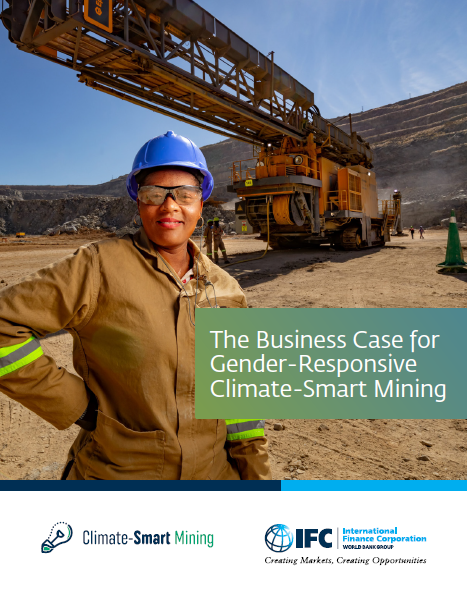
The Business Case for Gender-Responsive Climate-Smart Mining
This document illustrates how gender-responsive climate-smart mining (CSM) strategies are good for business and good for the planet. It outlines entry points for gender considerations within the pillars of the CSM Initiative and enlists recommendations for different stakeholders such as companies, government and civil society to engage.
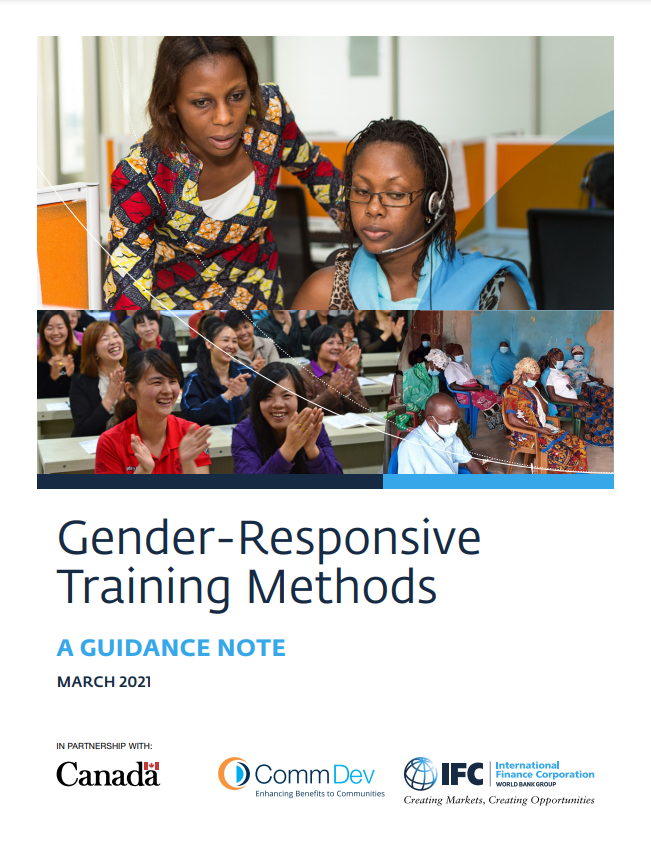
Gender-Responsive Training Methods: A Guidance Note
This Guidance Note highlights how training initiatives can respond to women and men’s different needs and learning preferences. It is intended to strengthen the skills and practice of training providers who run technical business courses for entrepreneurs—whether face to face, or virtually.
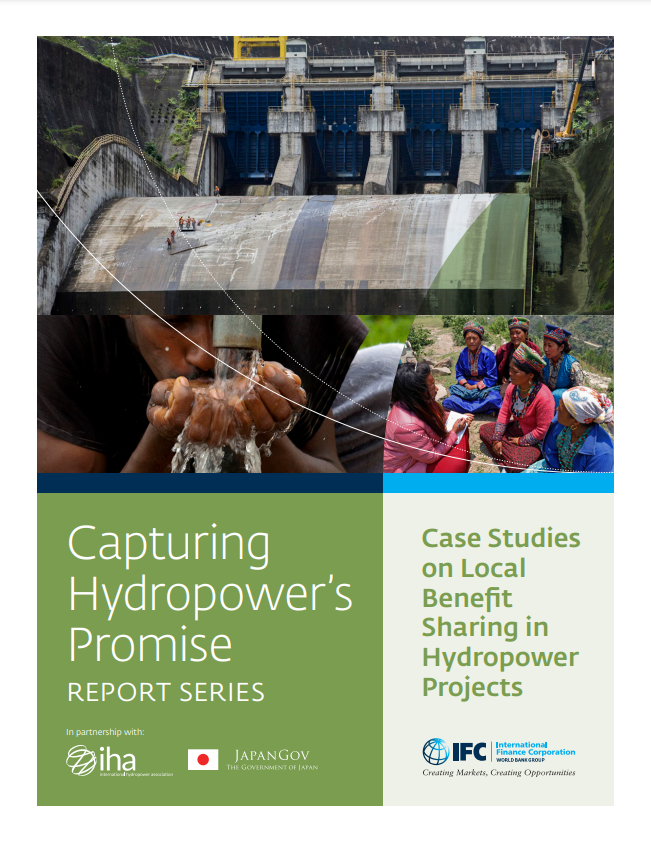
Capturing Hydropower’s Promise: Report Series
The series Capturing Hydropower’s Promise features suggested approaches on implementing local benefit sharing in hydropower projects, along with good practice examples.
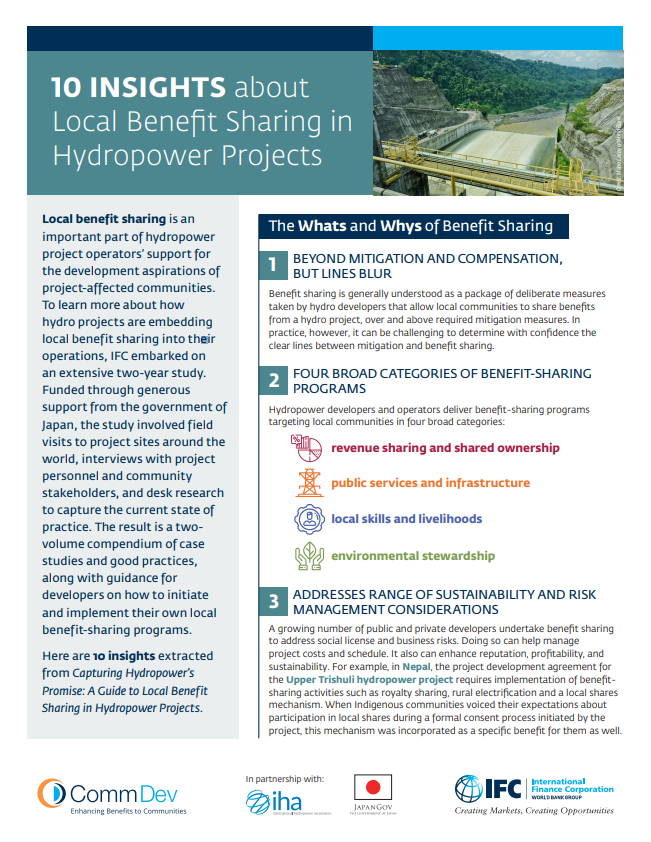
10 Insights about Local Benefit Sharing in Hydropower Projects
This brief highlights 10 insights extracted from the publication Capturing Hydropower’s Promise: A Guide to Local Benefit Sharing in Hydropower Projects.
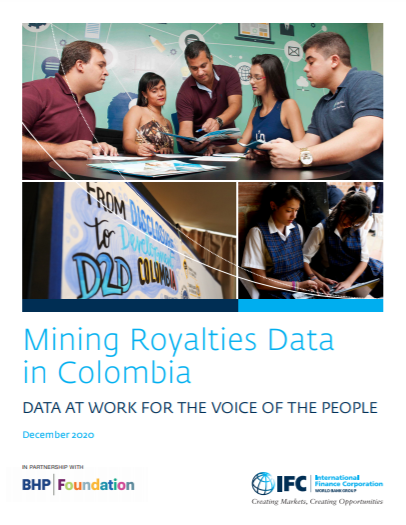
Mining Royalties Data in Colombia: Data at Work for the Voice of the People
In this report, IFC presents a set of recommendations for governments, industry and civil society aimed at improving data disclosure and use practices of mining royalty data to provide citizens with complete, relevant and actionable information. En el informe de D2D Datos de Regalías Mineras en Colombia: Datos en beneficio de los ciudadanos, IFC presenta […]
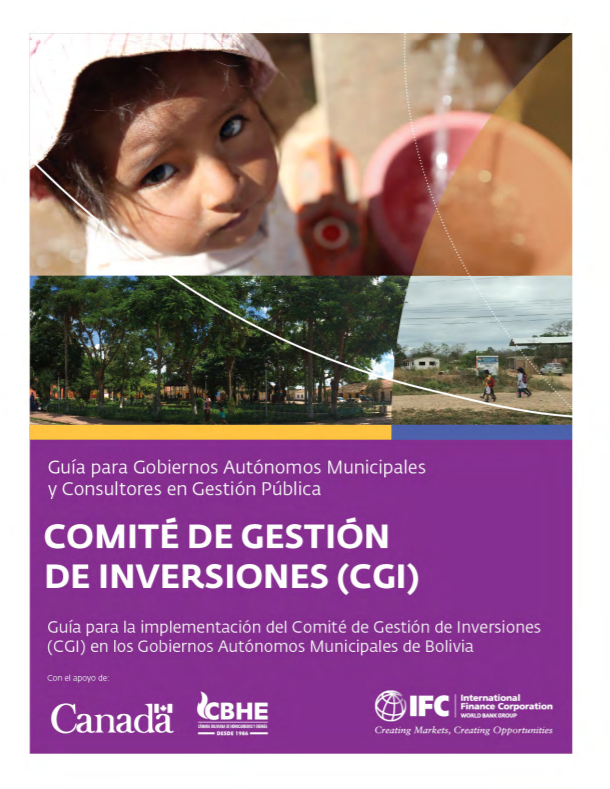
Guidance for Bolivia’s Municipalities on Investing Natural Resource Royalties
Royalties paid by natural resources companies active in Bolivia are intended to support local community development. But often local communities that are impacted by projects do not receive critical benefits to improve their living conditions, such as access to basic services and infrastructure. This can create a difficult operating environment, with host communities looking to […]
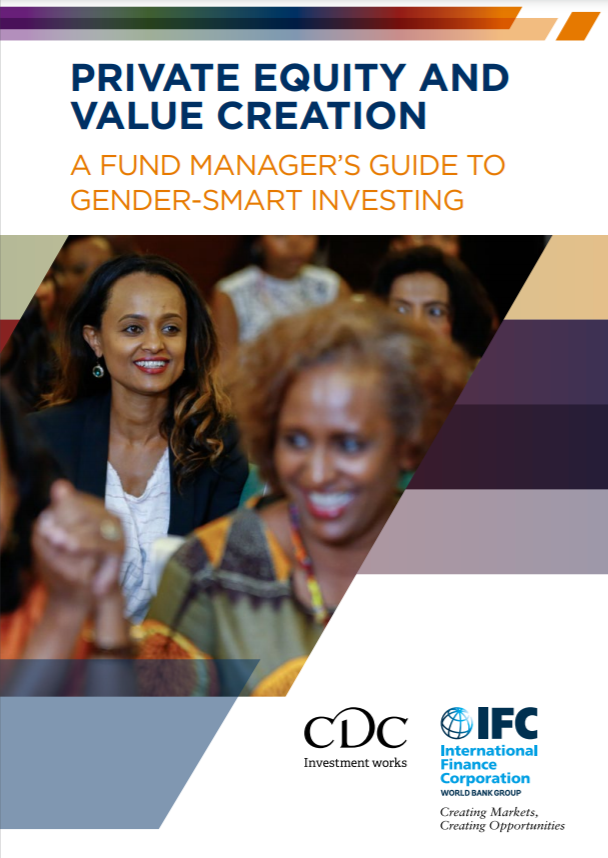
Private Equity and Value Creation: A Fund Manager’s Guide to Gender-Smart Investing
This guide has been developed to address key questions and gaps in information we have experienced and observed through extensive discussions across the gender smart investing field over the past few years. It is a practical “how to” step by step guide for fund managers on how to strengthen gender diversity within their own firms and incorporate a gender focus into investment operations.
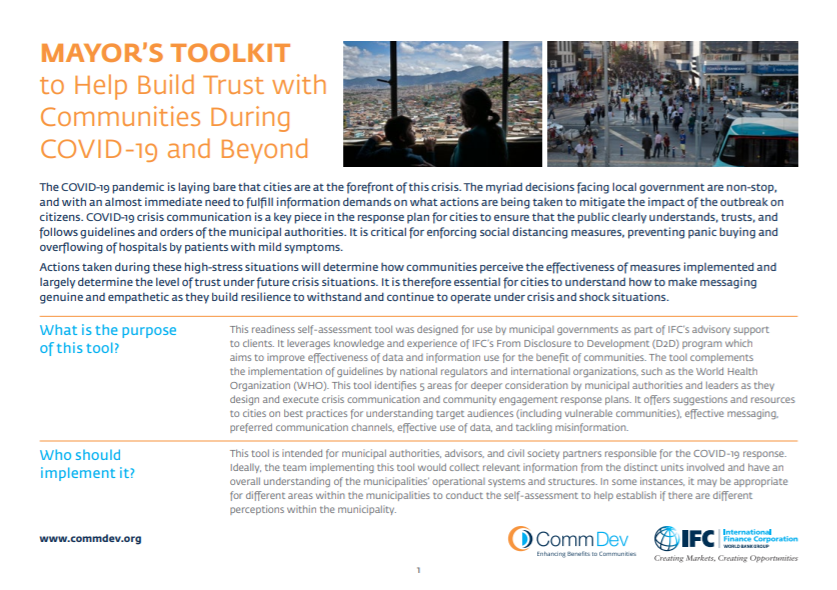
Mayor’s Toolkit to Help Build Trust with Communities During COVID-19 and Beyond
This readiness self-assessment tool was designed for use by municipal governments as part of IFC’s advisory support to clients. It leverages knowledge and experience of IFC’s From Disclosure to Development (D2D) program which aims to improve effectiveness of data and information use for the benefit of communities. The tool complements the implementation of guidelines by […]
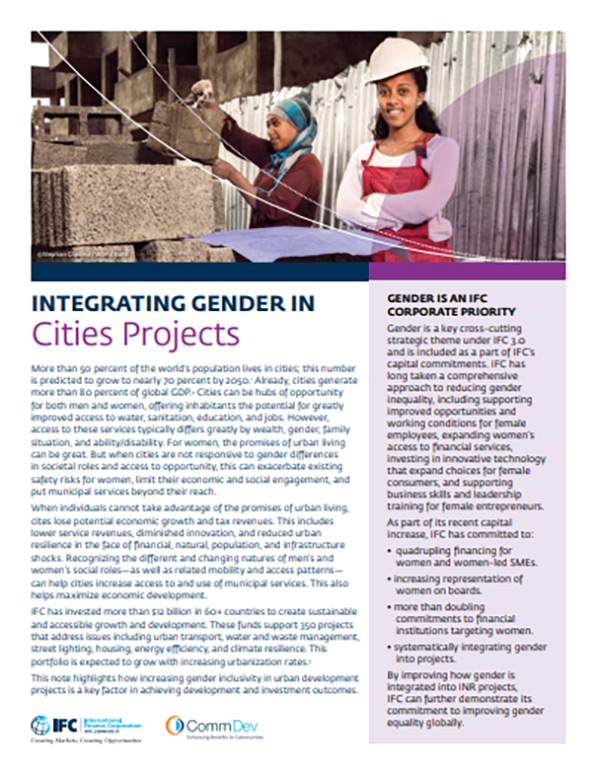
Integrating Gender in Cities Projects
This note highlights how increasing gender inclusivity in urban development projects is a key factor in achieving development and investment outcomes.
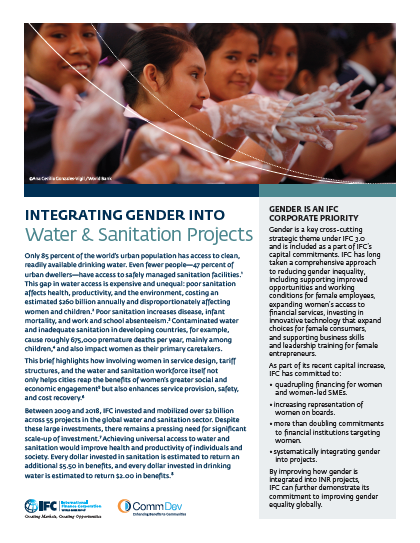
Integrating Gender into Water & Sanitation Projects
This brief highlights the benfits of cities involving women in service design, tariff structures, and the water and sanitation workforce

Minerals for Climate Action: The Mineral Intensity of the Clean Energy Transition
A World Bank Group report finds that the production of minerals, such as graphite, lithium and cobalt, could increase by nearly 500% by 2050, to meet the growing demand for clean energy technologies. It estimates that over 3 billion tons of minerals and metals will be needed to deploy wind, solar and geothermal power, as […]
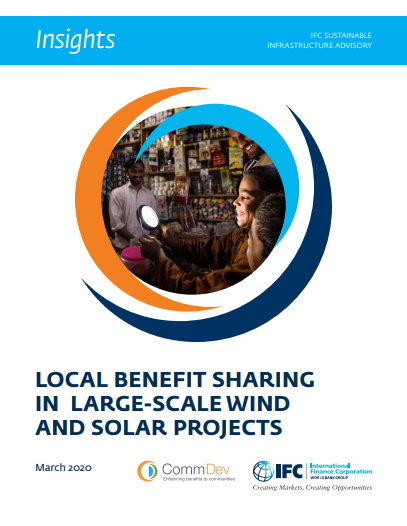
Highlights: Local Benefit Sharing in Large-scale Wind and Solar Projects
These are key highlights from the paper “Local Benefit Sharing in Large-Scale Wind and Solar Projects,” providing insights into the unique social challenges and opportunities for wind and solar developers.
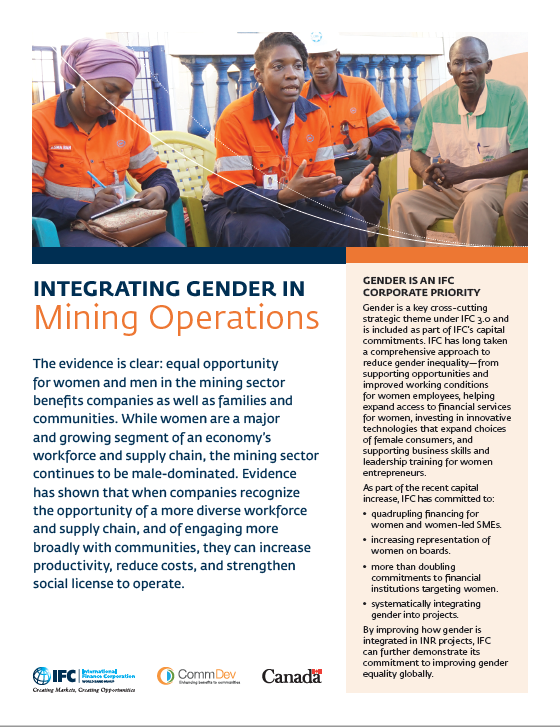
Integrating Gender in Mining Operations
When companies recognize the opportunity of a more diverse workforce and supply chain, and of engaging more broadly with communities, they can increase productivity, reduce costs, and strengthen social license to operate.
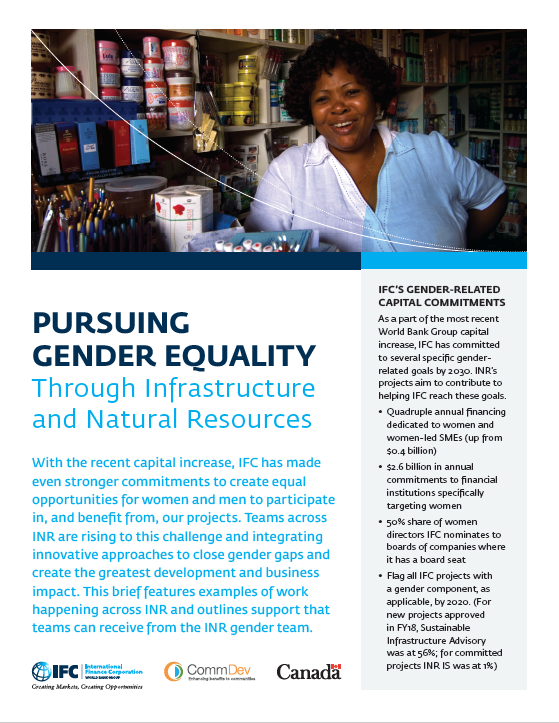
Series: Pursuing Gender Equality Through Infrastructure and Natural Resources
This series of briefs provided tools for infrastructure and natural resources companies to benefit from gender equality.
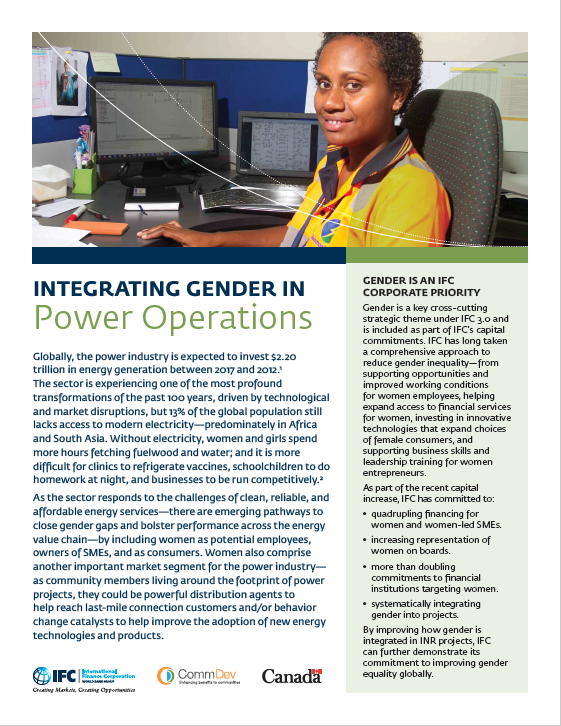
Integrating Gender in Power Operations
As the sector responds to the challenges of clean, reliable, and affordable energy services—there are emerging pathways to close gender gaps and bolster performance across the energy value chain—by including women as potential employees, owners of SMEs, and as consumers.
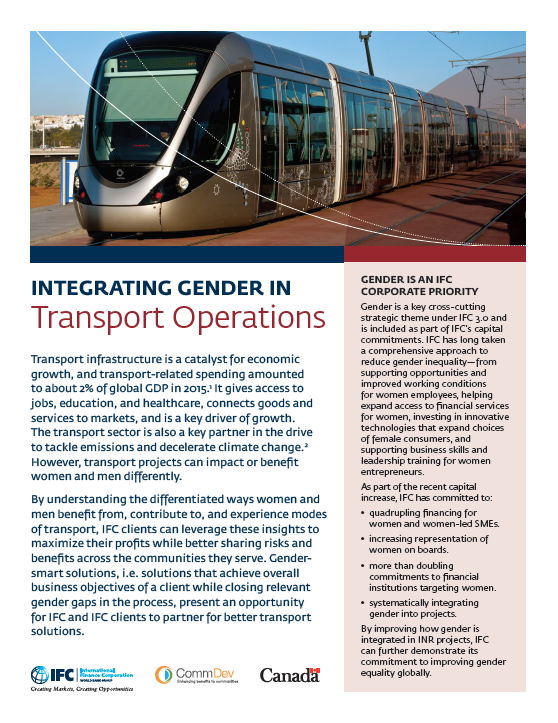
Integrating Gender in Transport Operations
By understanding the differentiated ways women and men benefit from, contribute to, and experience modes of transport, IFC clients can leverage these insights to maximize their profits while better sharing risks and benefits across the communities they serve.
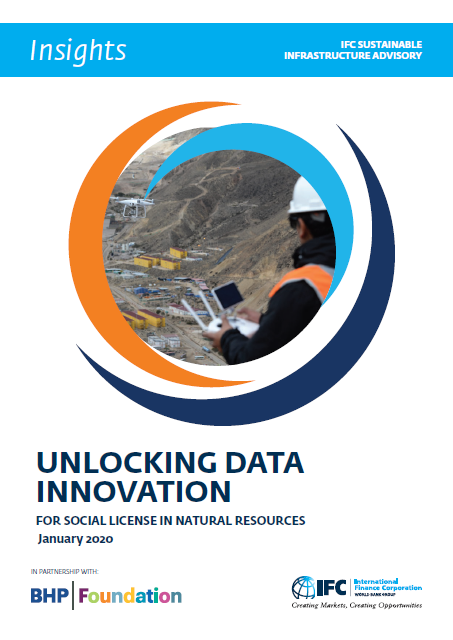
Highlights: Unlocking Data Innovation for Social License in Natural Resources
These are key highlights from the knowledge publication “Unlocking Data Innovation for Social License in Natural Resources” which describes how companies can use new data tools, approaches, and techniques to generate and sustain social license in communities.
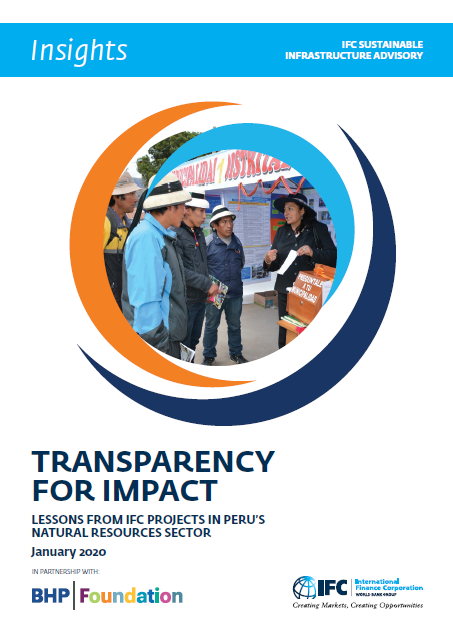
Highlights: Data in Action
These are key highlights from the publication “Data in Action” which consolidates the findings of the natural resources data assessments conducted in: Colombia, Ghana, Mongolia, and Peru by the From Disclosure to Development (D2D) program.

Highlights: Transparency for Impact
These are key highlights from the publication “Transparency for Impact” which intends to help natural resources companies, government agencies, and development practitioners, design and implement transparency-related interventions.
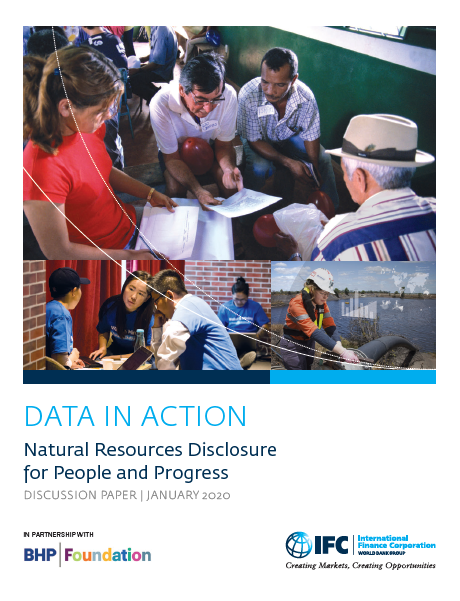
Data in Action: Natural Resources Disclosure for People and Progress
his discussion paper consolidates the findings of D2D’s natural resources data assessments conducted in: Colombia, Ghana, Mongolia, and Peru. It describes key challenges and makes recommendations to industry, governments, and civil society that help bridge the existing data gaps and unlock data-enabled opportunities in the natural resources sector.
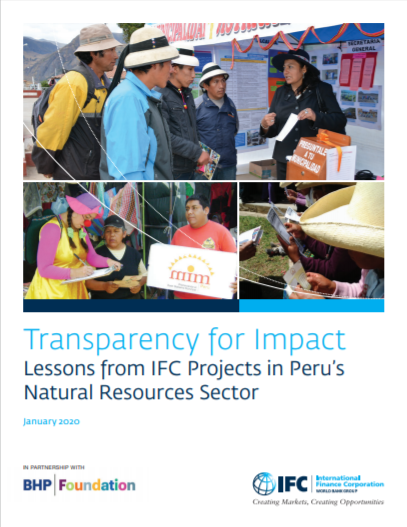
Transparency for Impact: Lessons from IFC Projects in Peru’s Natural Resources Sector
This document is part of a series of knowledge products by IFC’s From Disclosure to Development program. Two other publications in the series are Unlocking Data Innovation for Social License in Natural Resources and Natural Resource Data: Challenges and Opportunities.
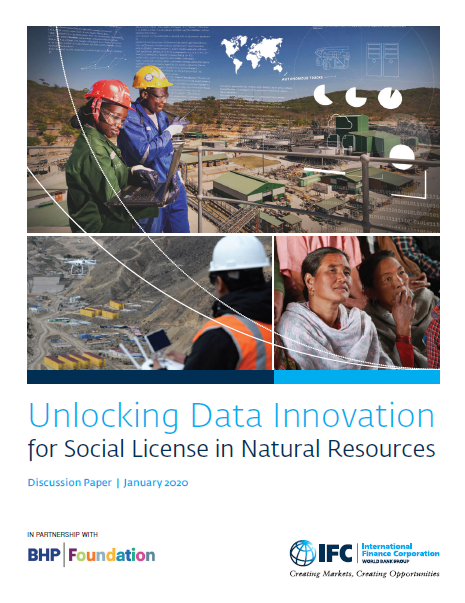
Unlocking Data Innovation for Social License in Natural Resources
This report describes how companies can use new data tools, approaches, and techniques to generate and sustain social license in communities.
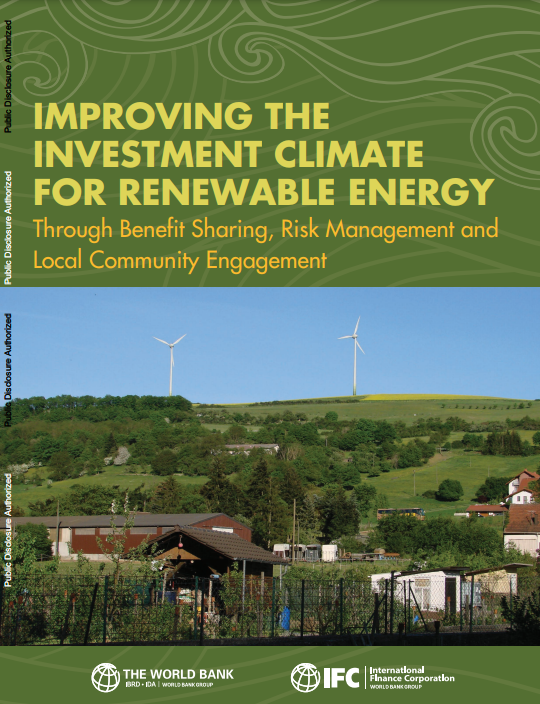
Improving the Investment Climate for Renewable Energy: Through Benefit Sharing, Risk Management, and Local Community Engagement
The study provides recommendations on how to improve the investment climate for renewable energy and wind energy, in particular, through benefit sharing, risk management, and local community engagement.
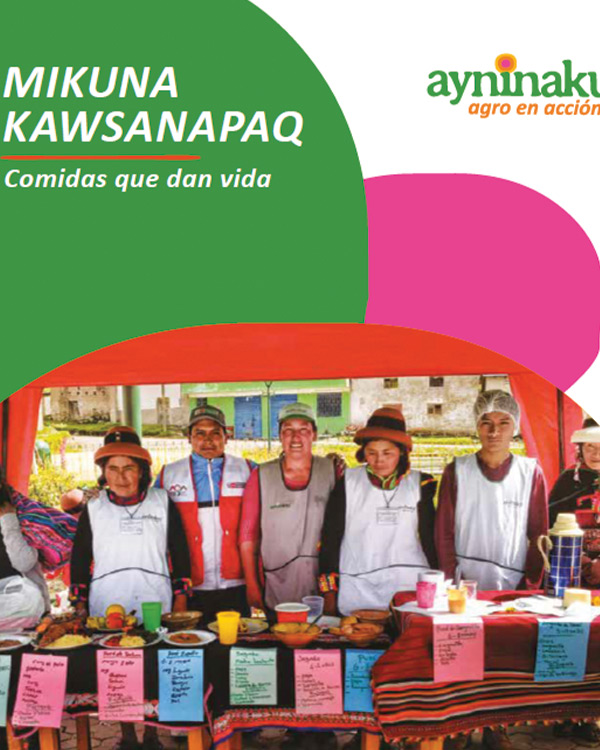
Mikuna Kawsanapaq Recipe Book
This recipe book includes the most innovative nutritious menus created by farmer families from Apurimac.
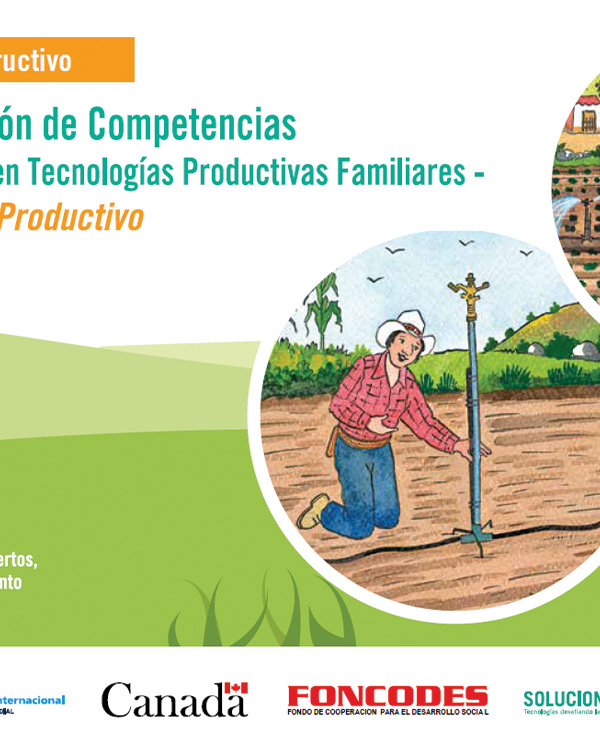
Certification for Yachachiq
This guide was developed in partnership with the Government of Peru to help Yachachiqs (local leaders on small-scale agriculture) understand and become familiar with a certification process.
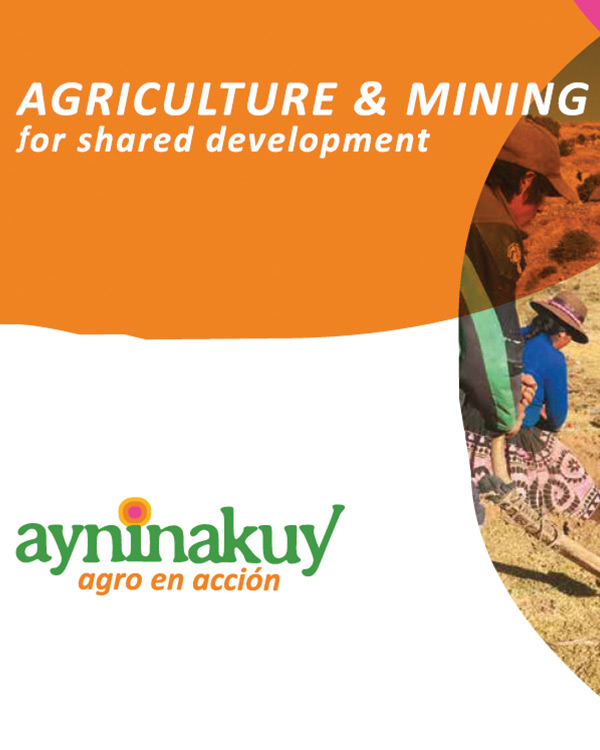
Ayninakuy in Pictures
Through pictures, this publication illustrates the results of IFC’s Ayninakuy project and how it impacted local families, as well as the outcomes of public-private partnerships to enhance farmers’ livelihoods in the mining region of Apurimac, Peru.
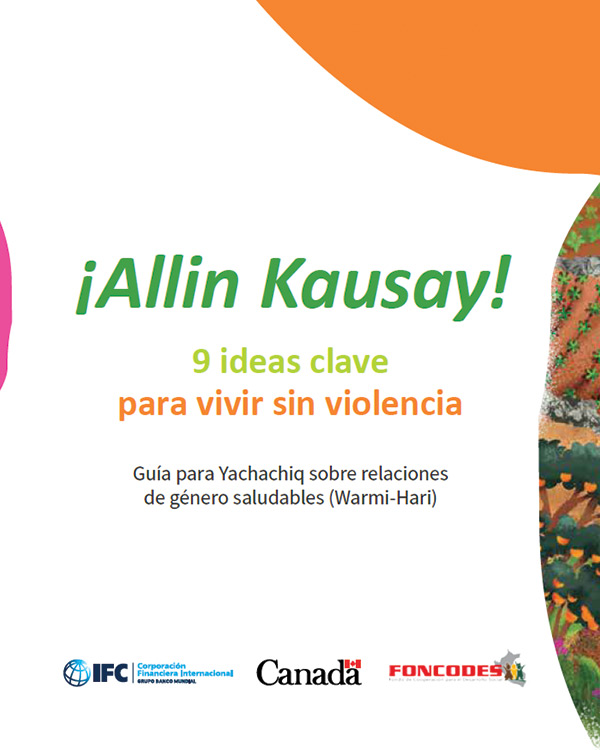
Allin Kausay! 9 Key Ideas to Live Without Violence
This guide aims to help local agricultural leaders (“Yachachiq”) address domestic and gender-based violence and promote healthier gender relationships using public channels and resources available to guide women and families.
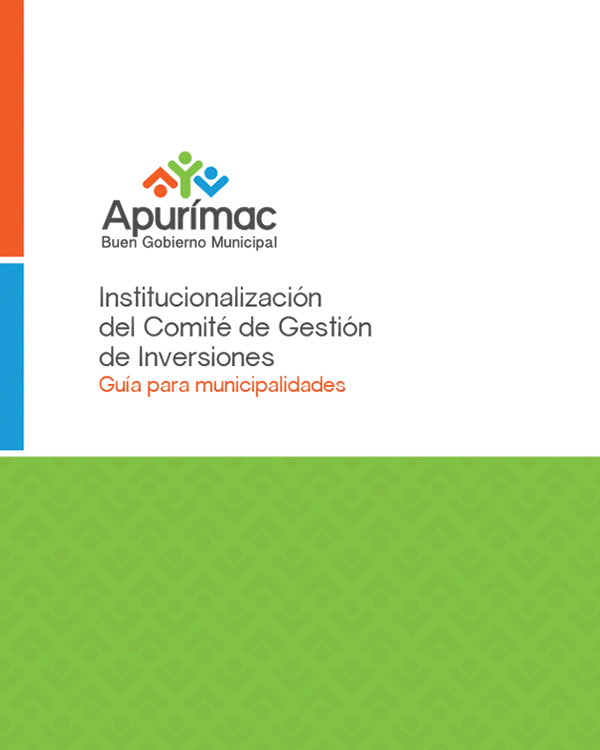
Municipal Good Governance Guides
IFC has compiled in a series of guides its experience and learnings promoting good governance best practices among local governments in Peru to provide municipal officers with the basic tools for improving investment management, transparency mechanisms, and citizen participation.
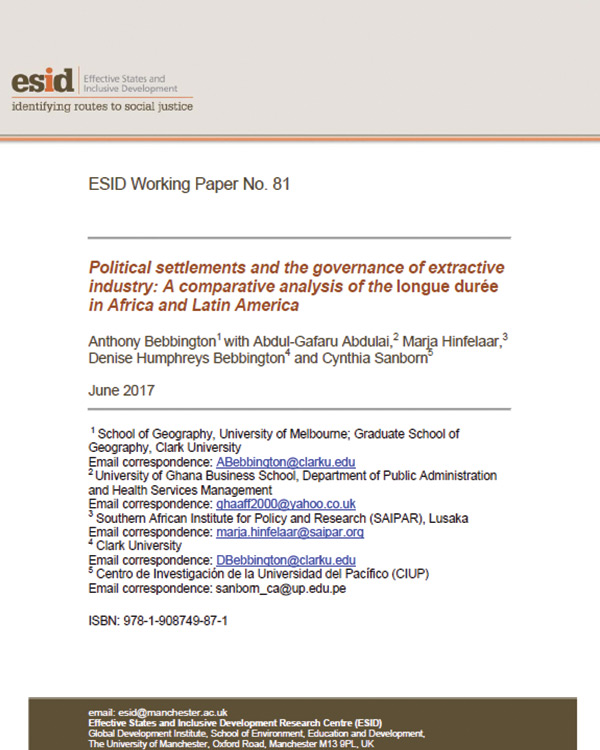
Political Settlements and the Governance of Extractive Industry: A Comparative Analysis of the longue durée in Africa and Latin America
This paper synthesises findings from research in Bolivia, Ghana, Peru and Zambia to address the following three questions
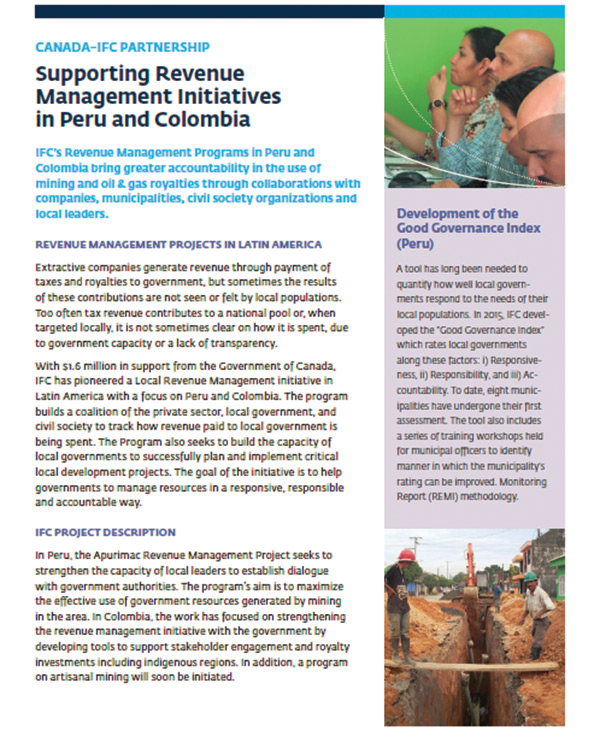
Supporting Revenue Management Initiatives in Peru and Colombia
IFC’s Revenue Management Programs in Peru and Colombia bring greater accountability in the use of mining and oil & gas royalties through collaborations with companies, municipalities, civil society organizations and local leaders.
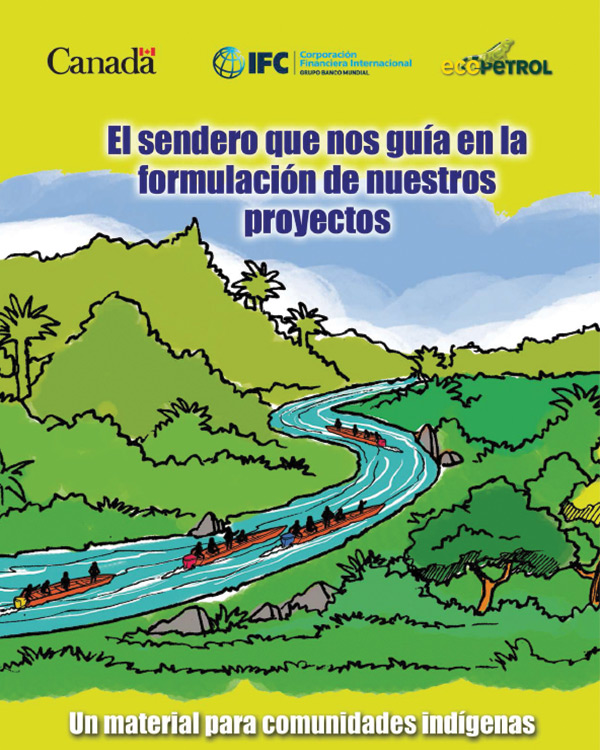
Preparing Public Investment Projects – A Guide for Indigenous Communities in Colombia
This guide about preparing public investment projects is addressed to indigenous communities in Colombia, to raise awareness about royalties from Extractive Industries, the rights they have to have access to these resources, as well as explaining the process to create investment proposals to tackle their needs with the support from local governments.
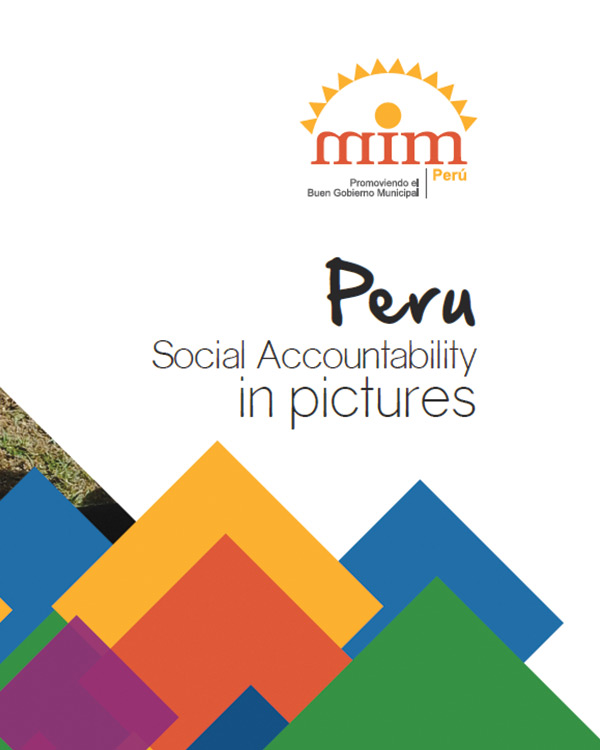
Social Accountability in Pictures
The document shows in a visual manner IFC’s experience promoting social accountability at the local level in Peru’s extractive regions through the implementation of the MIM (Improving Municipal Investment) Peru project.
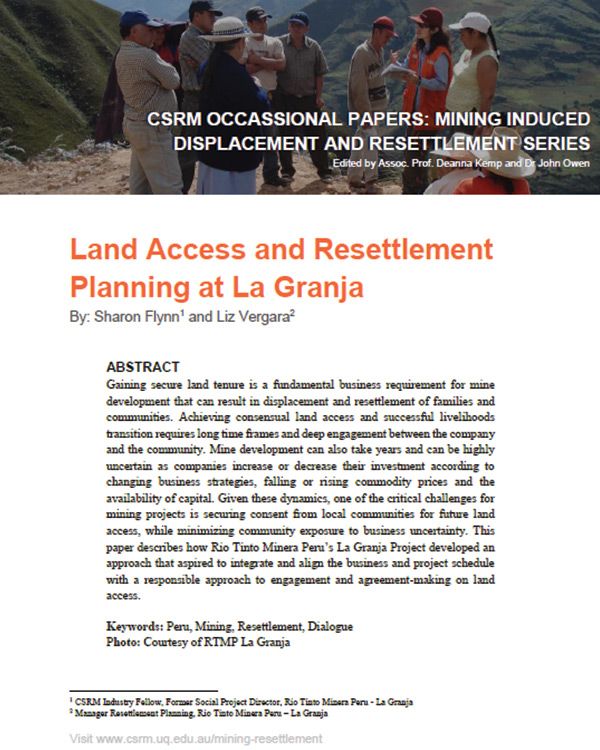
Land Access and Resettlement Planning at la Granja
Gaining secure land tenure is a fundamental business requirement for mine development that can result in displacement and resettlement of families and communities.
‘What is legal?’ Formalising artisanal and small scale mining in Colombia
Colombia’s mining sector is characterised by widespread informality. A recent census revealed that 72 percent of all mining operations in Colombia are classed as ‘artisanal and small-scale mining’ (ASM), and 63 percent are ‘informal,’ lacking a legal mining concession or title.
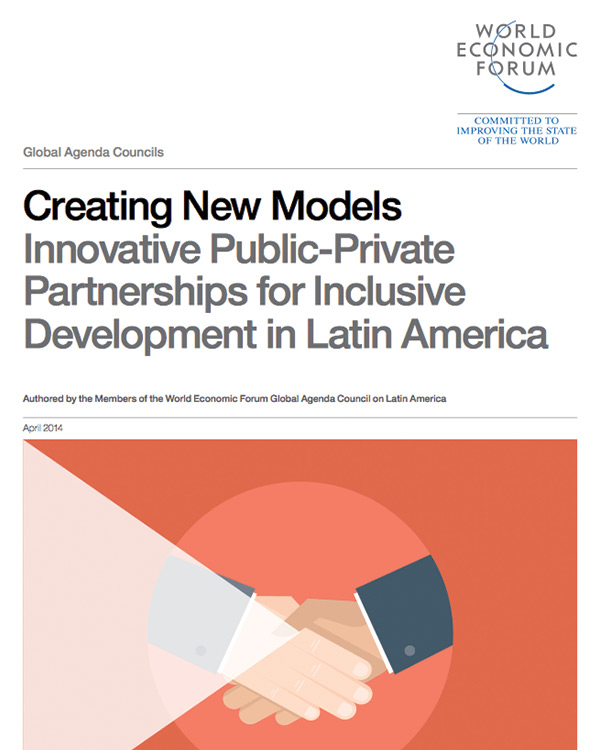
Creating New Models: Innovative Public-Private Partnerships for Inclusive Development in Latin America
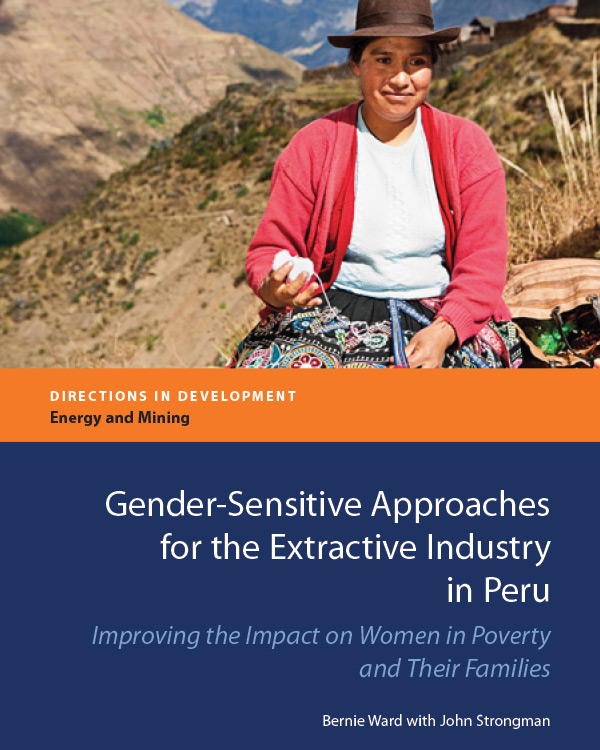
Gender-Sensitive Approaches for the Extractive Industry in Peru: Improving the Impact on Women in Poverty and their Families
The negative impacts of extractive industry projects fall predominantly on women rather than men and are much more significant than generally recognized, including the breakdown of family relations and a significant increase in family tensions and domestic violence associated with the arrival of projects in poor communities.
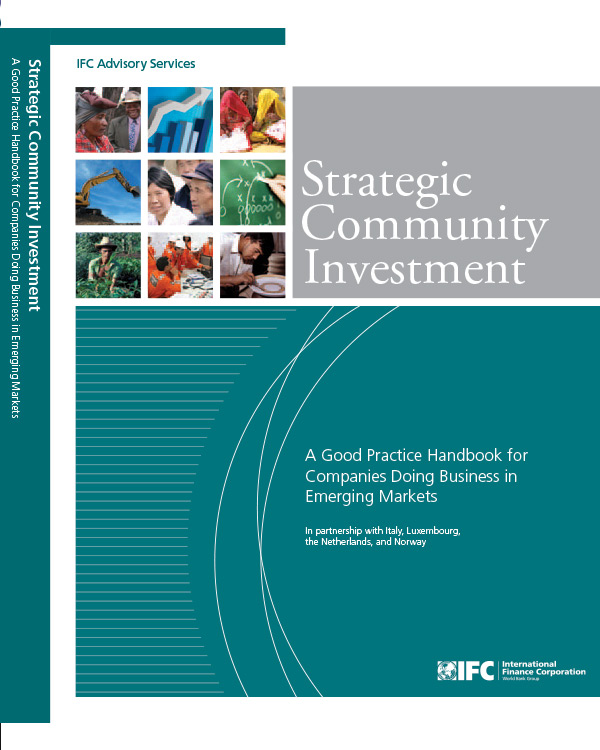
Strategic Community Investment (SCI): A Good Practice Handbook & Quick Guide for Companies Doing Business in Emerging Markets
The content of the Handbook is organized around seven key areas comprising a comprehensive strategic planning framework for community investment.